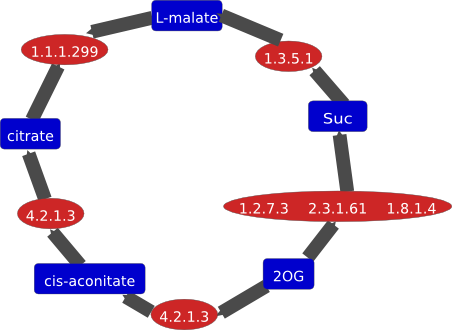EC Number   |
General Information   |
Reference   |
|---|
    6.3.3.2 6.3.3.2 | malfunction |
inhibition of MTHFS in human MCF-7 breast cancer cells arrests the growth of cells |
703027 |
    6.3.3.2 6.3.3.2 | metabolism |
the enzyme is part of the folate-dependent one-carbon metabolism in the cytoplasm, overview |
701907 |
    6.3.3.2 6.3.3.2 | physiological function |
MTHFS regulates the flow of carbon through the one-carbon metabolic network, which supplies essential components for the growth and proliferation of cells |
703027 |
    6.3.3.2 6.3.3.2 | physiological function |
mutant FUEL, which stands for folate utilization enzyme for leucovorin, is hypersusceptible to antifolates and unable to metabolize folinic acid. FUEL lacks 5,10-methenyltetrahydrofolate synthase MTHFS activity responsible for the only ATP-dependent, irreversible conversion of folinic acid to 5,10-methenyltetrahydrofolate. In trans expression of active MTHFS proteins from bacteria or human restores both antifolate resistance and folinic acid utilization to FUEL. Absence of MTHFS results in marked cellular accumulation of polyglutamylated species of folinic acid. MTHFS also affects Mycobacterium smegmatis utilization of monoglutamylated 5-methyltetrahydrofolate exogenously added to the medium |
715595 |





